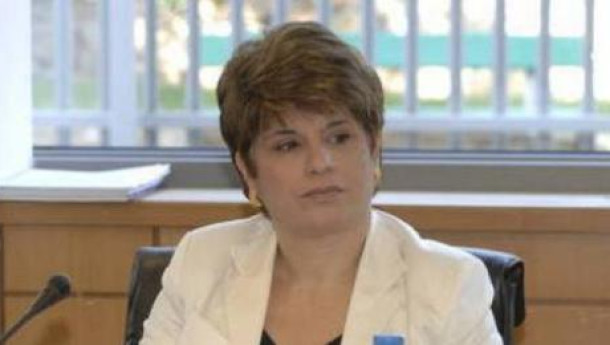
The governor of the Central Bank of Cyprus is awaiting for the fifth month, now, the process initiated by the executive for the termination of her contract.
Unlike in the case of the depute attorney general, Rikkos Erotokritou, the attorney general seems to be moving particularly slowly in the case of Chrystalla Georghadji.
The long duration of the preparatory work for the initiation of the termination process, which has to go before the Supreme Court, is adding to the dysfunction of the Central Bank at a critical juncture for the country’s banking system.
The government said on March 15 that the President of the Republic “has no other choice but to ask the Attorney General to examine the data in order to activate the constitutional provisions for the removal of Mrs. Georghadji”.
The Governor is accused of conflict of interest resulting from the involvement of the law office of her ex-husband, to which her daughter was also employed, in cases of former Chairman of Laiki Bank Andreas Vgenopoulos, which are still pending before the Cypriot courts.
Ms. Georghadji had also been accused by the President that she had concealed the whole thing and that she changed a relevant provision of her contract to cover this potential “conflict of interest”.
The Georghadji case took a different turn when - in the effort to investigate what is being done at the Central Bank - a reference was made to a case of the depute prosecutor general, who is now before the courts (also) for dismissal and for criminal offenses.
The case of Rikkos Erotokritou has contributed to the publication of the relevant by-laws for the termination of independent officers of the Republic, through the Supreme Court.
Despite the preparation of these by-laws, the Georghadji case does not seem to advance.
The prolonged uncertainty in the case not only affects the status of Mrs. Georghadji in the banking system but also the proper functioning of the Bank since there is a difficulty in decision making and the promotion of important regulations (eg the protection of depositors).
All this time, Ms. Georghadji refrains from public statements while recently she declined to give the usual press conference in relation to the annual report of the CB.
The crisis in the CB is maintained amid efforts to restructure the banking system and the prolonged crisis in the banking system of Greece, which indirectly affects Cyprus through the subsidiaries of Greek banks.
The crisis is also extended to the relations of the legislative power with the CB as the Institutions Committee unanimously found a conflict of interest of the CB Governor last June, in a report prepared after months of public hearings.
The ECB, through a letter of ECB President Mario Draghi to President Anastasiades last April, drew attention to the Cypriot government that “the independence of central banks is a key pillar in the economic and institutional framework of the European Union”.
The file of the Georghadji case, which is prepared by the legal service, includes findings, as stated both by the President of the Republic and the Attorney General, that can form the basis for a termination procedure.
President of the Republic Nicos Anastasiades, in a recent interview on a TV channel, reported that “it is a matter of time to submit the request to the Supreme Court”.
It is the second time that Anastasiades government openly challenges the independence of the CB Governor.
Back in 2013, Anastasiades government was in conflict with former CB Governor Panicos Demetriades.
Mr. Demetriades was placed under criminal investigation for five months until he finally resigned taking compensation. On the same day he resigned the prosecution announced that it has not identified any criminal offenses by the former Governor.
On that occasion, the ECB also warned the Cypriot government not to undermine the independence of the Central Bank.
Unlike in the case of the depute attorney general, Rikkos Erotokritou, the attorney general seems to be moving particularly slowly in the case of Chrystalla Georghadji.
The long duration of the preparatory work for the initiation of the termination process, which has to go before the Supreme Court, is adding to the dysfunction of the Central Bank at a critical juncture for the country’s banking system.
The government said on March 15 that the President of the Republic “has no other choice but to ask the Attorney General to examine the data in order to activate the constitutional provisions for the removal of Mrs. Georghadji”.
The Governor is accused of conflict of interest resulting from the involvement of the law office of her ex-husband, to which her daughter was also employed, in cases of former Chairman of Laiki Bank Andreas Vgenopoulos, which are still pending before the Cypriot courts.
Ms. Georghadji had also been accused by the President that she had concealed the whole thing and that she changed a relevant provision of her contract to cover this potential “conflict of interest”.
The Georghadji case took a different turn when - in the effort to investigate what is being done at the Central Bank - a reference was made to a case of the depute prosecutor general, who is now before the courts (also) for dismissal and for criminal offenses.
The case of Rikkos Erotokritou has contributed to the publication of the relevant by-laws for the termination of independent officers of the Republic, through the Supreme Court.
Despite the preparation of these by-laws, the Georghadji case does not seem to advance.
The prolonged uncertainty in the case not only affects the status of Mrs. Georghadji in the banking system but also the proper functioning of the Bank since there is a difficulty in decision making and the promotion of important regulations (eg the protection of depositors).
All this time, Ms. Georghadji refrains from public statements while recently she declined to give the usual press conference in relation to the annual report of the CB.
The crisis in the CB is maintained amid efforts to restructure the banking system and the prolonged crisis in the banking system of Greece, which indirectly affects Cyprus through the subsidiaries of Greek banks.
The crisis is also extended to the relations of the legislative power with the CB as the Institutions Committee unanimously found a conflict of interest of the CB Governor last June, in a report prepared after months of public hearings.
The ECB, through a letter of ECB President Mario Draghi to President Anastasiades last April, drew attention to the Cypriot government that “the independence of central banks is a key pillar in the economic and institutional framework of the European Union”.
The file of the Georghadji case, which is prepared by the legal service, includes findings, as stated both by the President of the Republic and the Attorney General, that can form the basis for a termination procedure.
President of the Republic Nicos Anastasiades, in a recent interview on a TV channel, reported that “it is a matter of time to submit the request to the Supreme Court”.
It is the second time that Anastasiades government openly challenges the independence of the CB Governor.
Back in 2013, Anastasiades government was in conflict with former CB Governor Panicos Demetriades.
Mr. Demetriades was placed under criminal investigation for five months until he finally resigned taking compensation. On the same day he resigned the prosecution announced that it has not identified any criminal offenses by the former Governor.
On that occasion, the ECB also warned the Cypriot government not to undermine the independence of the Central Bank.

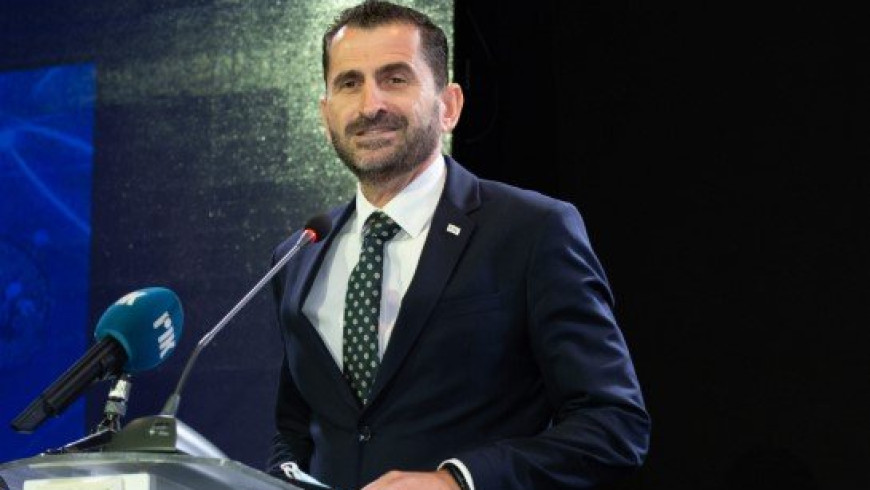


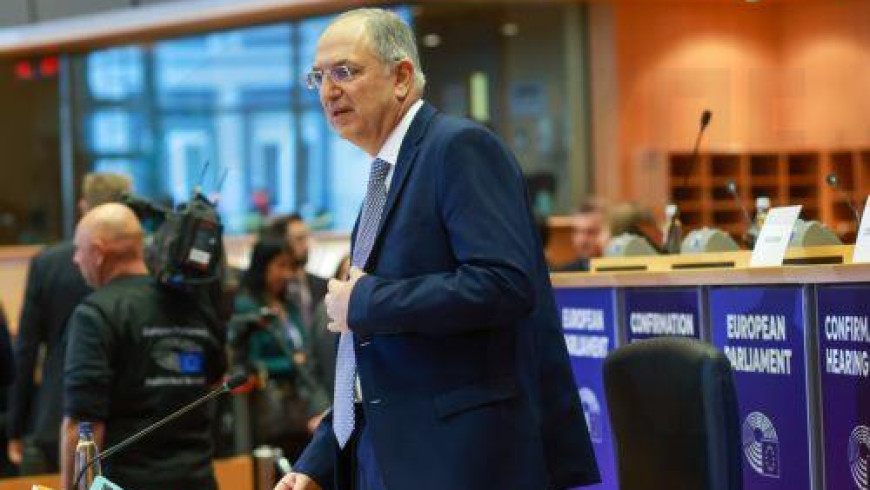

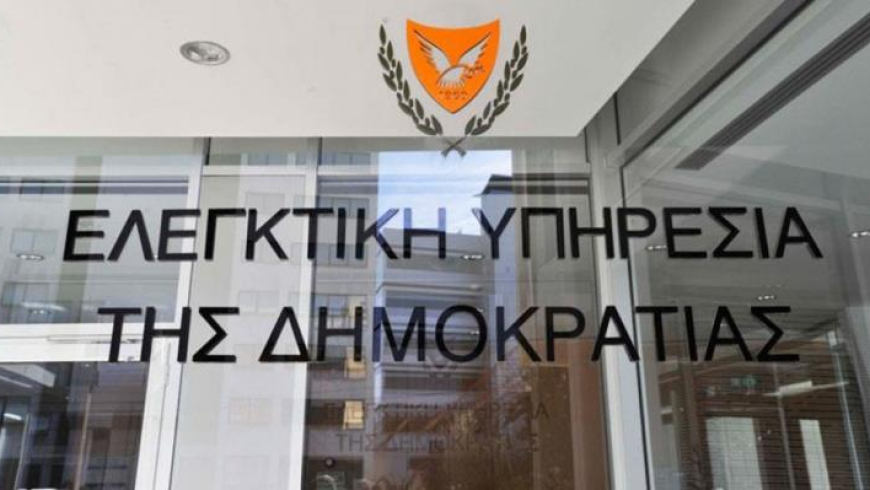
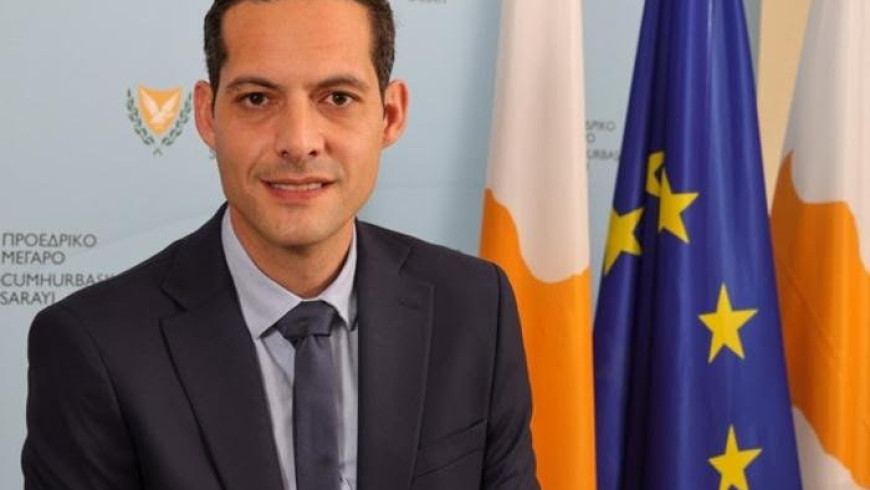






 3287.99
3287.99 1275.09
1275.09
